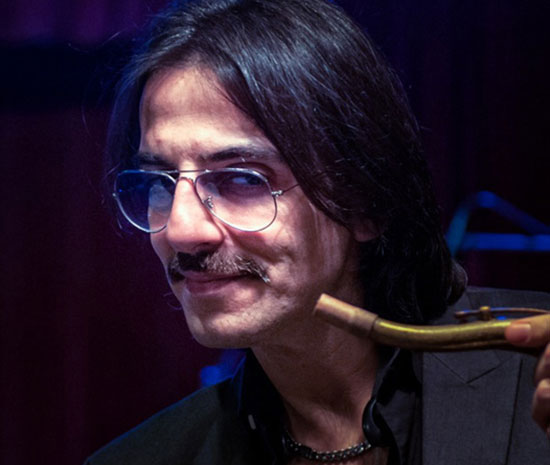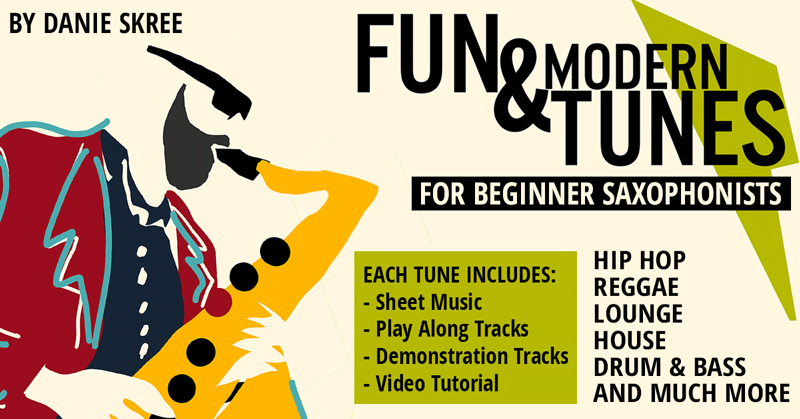Q & A with the Soulful and Swinging Saxman Everyone Needs to Hear, Max Ionata
 Background
Background
Max Ionata (Born in 1972), is one of the top Italian saxophonists on the scene today. Thus far, Max has released 70 albums as a leader and sideman with international and national artists. Max has performed as both a leader and a sideman at many of the world’s most popular jazz venues with musicians. Over the course of his career, he’s played alongside great such as Robin Eubanks, Lenny White, Billy Hart, Joe Locke, Steve Grossman, Mike Stern, Bob Mintzer, Joel Frahm, Anthony Pinciotti, Jimmy Haslip, Marvin Smitty Smith, and the list goes on and on.
Interview
ZS: What interested you in picking up the saxophone? Over your career, which saxophonists influenced you in becoming the musician you are today?
MI: My story is bit strange because when I was a child there was a street band in my village that was searching for new players to join the band. I told my father that I was interested in playing drums at that time, but a good friend of mine told me he was crazy about the saxophone, which lead me to ask, “what is a saxophone?” because I had never heard that word before or seen one. I ended up deciding to play both the drums and the saxophone, so when I spoke with the man who led the street band about my interest in the sax, I was lucky because he came over to my house with a soprano saxophone. What is funny is my friend who wanted to play the saxophone, received a clarinet instead so I was very lucky. When I first started playing the soprano I started to fall in love with playing the saxophone, but I really wanted to play tenor over soprano because I really liked the sound of the tenor saxophone much more.
After a couple of years playing with this street band I gave my friend my soprano and in exchange got his tenor. At the time, I was 10 years old when I started playing the tenor saxophone in the street band, and the tenor was actually bigger than me, so it was a bit of a challenge marching with it. With that being said, since picking the tenor saxophone, I have never changed my mind and decided to study tenor for the rest of my life.
I came from a very small village in the center of Italy, so when I started practicing and studying, I always played for fun and music was just a hobby for me. There were no jazz or professional musicians in my village that I could look up to or be inspired by. In addition to practicing from time to time, I tried working in other areas. I sold car parts and did other kinds of work, but always as a salesman. When I turned 24, I decide to stop working as a salesman and focus on playing music, since it was my passion. I started studying music full-time and also worked at a factory. In between my shifts at the factory, I would go home and practice, and I did this for 4 years. When I was 28, I gave up the factory job and started to play music professionally.
Dexter Gordon was my first love because he played so clearly at such a high level. Of course, I also listened quite often to Sonny Rollins, Coltrane, Stan Getz, Hank Mobley. Today, I like to listen to, and am inspired by Seamus Blake very much because he has everything from melody to harmony to rhythm.
ZS: How do you practice today? What are areas that you continue to work on?
MI: I am not super-organized when it comes to practicing. Usually when I practice, I like to just start playing and identifying areas where I feel I need to improve. My practice session changes day by day, and over the last couple of years I have been changing mouthpieces, reeds, and ligatures, since I am not satisfied with my current setup which is driving me a bit crazy.
When I focus on something, I like to practice with an app called Drum Genius. I find this better than a metronome because it feels like you are playing with a real drummer. One example could be playing through all your melodic minor scales in all twelve keys. You could start on Cm6 for four bars then Em6 then Gm6 like a tune. This helped me to improve my playing inside the harmony as well as phrases at a faster tempo.
ZS: As you have taught and continue to teach masterclasses and clinics at universities, music stores, and other venues. what have you learned from players attending your masterclasses?
MI: I actually do not enjoy the teaching aspect very much because I am not focused so much on theory. What I do enjoy, is listening to students’ questions about sound, rhythm, playing standards, etc. which allows me to demonstrate how I approach these topics and identifies areas I need to work on. I know the theory part of playing music as a student is very important, but on the other hand, I find it important that playing music should be natural without over-analyzing everything you play.
ZS: What do you find most difficult about being a musician today?
MI: For me, playing music today has actually gotten easier rather than more difficult. I find myself relatively new to the scene, having played for just 20 years when I first got serious about playing music at 28. Now, it is better for me because more people know about me since I started playing abroad more and more over the past 5 years.
For young people, I think it has gotten more difficult because there are many more musicians and very good saxophone players in the young generation. Europe is also different from the Unites States because over here there are less saxophone players than in the U.S.
What I do find easier today is finding material to practice whether it’s online, a book, or a course a saxophonist created online. Although saxophonist’s today do not have access to the greats from the past such as Coltrane, Dexter, Getz, etc. I do find it easier to learn from someone who is heavily influenced by a jazz great because it might be easier to learn from them. An example would be if you like listening to John Coltrane and want to play like him, then I would reach out or listen to a player named Ben Solomon who plays very similar to Coltrane.
ZS: What are some upcoming projects you have/are working on?
MI: Over the past 20 years, I have recorded 16 CD’s in my name with original compositions and something like 100 recordings as a sideman. I am currently looking for inspiration to go back into the studio to record new original compositions. Right now, I am playing with a wonderful Danish trio with two musicians from Copenhagen, including Jesper Bodilsen on bass and Martin Maretti Andersen on drums. We will be touring in Italy in October and then Spain in November. With this group, I am hoping to go to the studio in the near future, but am still trying to figure out the sound and compositions I want to record. I also have a quartet in Italy that I play with and want to record, but again, I want to have original music ready before going into the studio. I do play quite often overseas with the Yutaka Shiina Quintet that is a great Japanese pianist based in Tokyo. We are playing in France with a tour in February and another tour in Japan in May.
ZS: What’s your thoughts on the importance of equipment and why have you changed gear over the years?
MI: I change a lot of horns, mouthpieces, reeds, and ligatures because I am never happy. I am always searching for my sound and how different pieces of equipment can affect it. I believe that sometimes changing equipment gives me more energy or inspiration to play in a different way or practice different things or new topics.
Current Equipment
Saxophones:
Soprano: LA Ripamonti
Tenor: Selmer Super Balanced Action (SBA)-43,xxx or Selmer Mark VI 100,xxx
Mouthpieces:
Soprano: Yanagisawa stock Refaced by Filippo Bucci- 7
Tenor: Handmade mouthpiece by Vincent Toner from London-Otto link copy in hard rubber Prototype 7*. Bari Hard Rubber refaced by Filippo Bucci- 7*
Reeds:
Soprano: D’Addario Select Jazz 3 hard
Tenor: D’Addario Select Jazz 3 hard and 3 Medium
Ligatures:
Soprano: Old Selmer ligature
Tenor: Roberto store wood. No brand on ligature. Ishimori silver ligature and also the gold one.
Website: Max Ionata Site
Videos:






October 7, 2019 @ 7:11 am
Thank alot. I really appreciate.
NAMM 2023 Saxophone Gear Roundup » Best. Saxophone. Website. Ever.
July 25, 2023 @ 7:20 am
[…] out the SYOS booth this year to see what was new, I saw that one of my favorite tenor players, Max Ionata, had recently come out with his SYOS signature mouthpiece. I knew I had to try it. I had tried […]